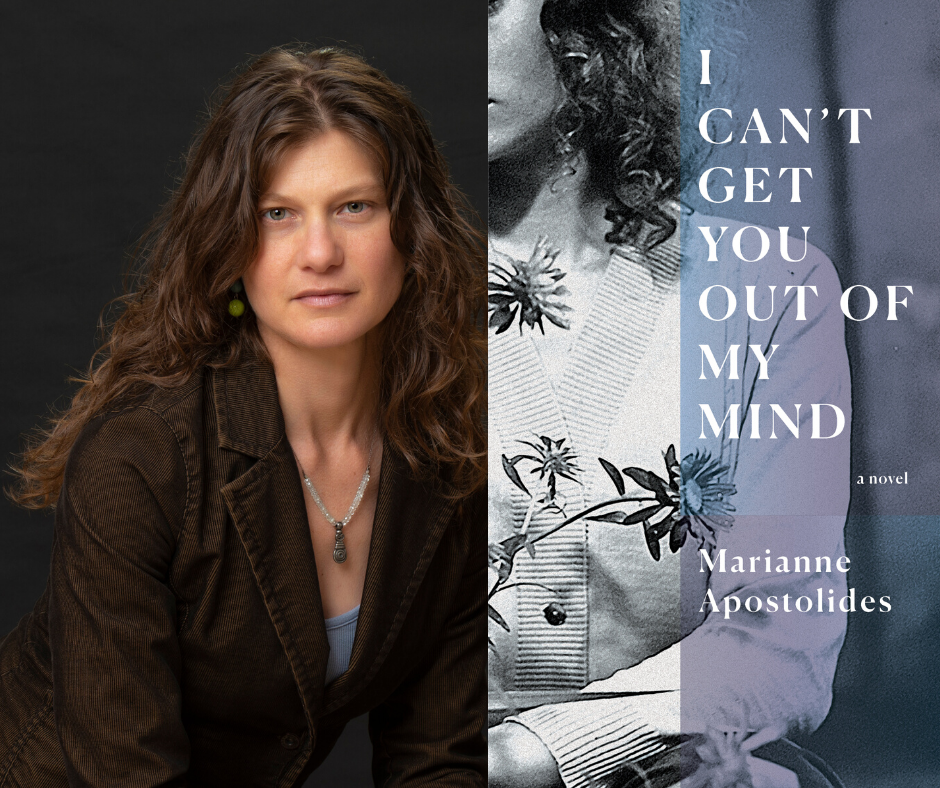In Conversation: Marianne Apostolides

“I don’t know what else to do right now, except observe, absorb, and speak.” —Marianne Apostolides
I Can’t Get You Out of My Mind, Marianne Apostolides’ latest novel, is eerily timely: it imagines a world in which humans and technology are intimately connected. The book drops anchor in the midst of a pandemic that’s drawn us closer to computers, cell phones, and other digital landscapes. Although it would be reductive—and fundamentally inaccurate—to label Apostolides’ book a “COVID novel,” the pandemic is on her mind: since early April, she’s been writing COVID Essays & Curation, a multimedia meditation on art, surveillance, and pre- and post-pandemic life. She talked to Book*hug about all three.
How has the pandemic affected your writing? What are you currently writing?
On the day my new novel was due to be published, I wrote an essay about COVID, driven by the need to grapple with a menace that seemed amorphous yet all-encompassing. What began as a single essay has grown into a larger project in which I draw on the artwork of others. I can’t predict the direction of this project, but I figure I’ll keep going because I keep feeling anger and grief; I keep seeking and asking, without any answers. I don’t know what else to do right now, except observe, absorb, and speak.
One of my essays became the basis for an arts event to commemorate the cherry blossom festival in High Park—a festival that was cancelled due to COVID:
How has it affected your reading? What are you currently reading?
I’m reading Hobbes, Dōgen, John Rawls, Japanese medieval poetry, and lots about COVID—white papers from Harvard, reports in MIT Technology Review, STAT Reports, Biometric Updates; publications from the WHO, the Center for Strategic and International Studies, etcetera. I’m curious about the social contract—how a people come together to form a society, and how that contract breaks down. I’m continuing my research about the AI and neuroscience, too (…this is the area of research for my Chalmers Fellowship…), so I’m looking at the expansion of AI-driven surveillance during COVID. I’m also reading Rousseau (on the social contract) and Deleuze (because his writing is wild).
I’m also partaking of various websites on visual art. The Aga Khan Museum is doing excellent COVID programming. I also do a daily check of Reuters’ photos of the day. Since everything is virtual anyway, I’m discovering museums and art galleries in places I’ll probably never have the chance to visit. For example, I’ve wandered through the collection of the Mori Art Museum in Tokyo.
Marianne Apostolides is the author of seven books, three of which have been translated. She is a two-time recipient of the Chalmers Arts Fellowship, and the winner of the 2017 K.M. Hunter Award for Literature. She lives in Toronto, Canada. You can find her on Twitter at @Apostolides_M.

